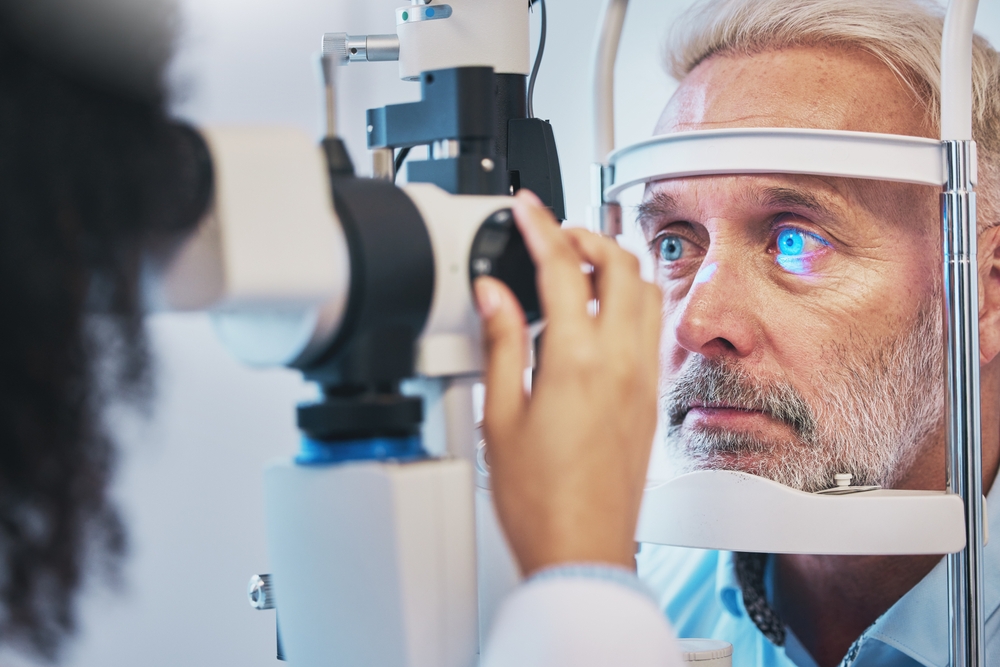Can Diabetes Lead to Glaucoma?
Diabetes is a health condition caused by chronic high blood sugar. Excessively high sugar content in the blood can wreak havoc on your body in many different ways.
Your eyes are no exception. Diabetes can lead to many different types of vision problems.
Keep reading to learn if diabetes can lead to glaucoma!
What is Glaucoma?
Glaucoma is a group of eye conditions that damages your optic nerve. The optic nerve is a crucial part of vision, as it connects the brain to the eye.

Any damage done to the optic nerve is permanent and devastating to your eyesight. Glaucoma is often caused by abnormally high pressure inside the eye, known as intraocular pressure (IOP).
This high eye pressure is frequently related to a problem with drainage of aqueous humor, which is the fluid inside the front part of your eye. If fluid builds up, the high pressure can damage the optic nerve.
There are also some forms of glaucoma not related to high IOP and eye pressure. Genetics, aging, injury, and other anatomical issues affecting the optic nerve or drainage angle of the eye are also risk factors for developing glaucoma.
What are the Different Types of Glaucoma?
There are several kinds of glaucoma. The most common form of glaucoma is open-angle glaucoma.
If you are diagnosed with open-angle glaucoma, the drainage system in your eye is only partly blocked. There are essentially no symptoms with this kind of glaucoma, so it is very hard to detect on your own.
Angle-closure glaucoma is very much the opposite. It is much less common, but the symptoms are fast and very obvious.
This type of glaucoma occurs when the drainage channel is completely closed, causing your internal eye pressure to spike. Angle-closure glaucoma can cause rapid vision loss and symptoms like:
- Nausea
- Sharp headaches
- Pupil dilation
- Blurry vision
Unlike open-angle glaucoma, the damage from angle-closure glaucoma happens fast. It is very important that you seek medical attention if you have the symptoms of angle-closure glaucoma.
How Do I Know If I Am Developing Glaucoma?
If you have open-angle glaucoma, there is a good chance you won’t even realize it. The only symptom is vision loss, which happens so gradually that most people don’t even realize their vision is chaning.
Many people who have glaucoma and don’t get regular eye exams will not notice anything is wrong with their vision until the condition advances. Unfortunately, with glaucoma, any vision loss is permanent.
This is why regular checkups with your eye care provider are so important. They can monitor your vision and ensure you are not at risk for any eye conditions that may cause vision loss.
How Do Eye Doctors Test For Glaucoma?
The primary ways eye doctors test to ensure you’re not at risk for glaucoma is tonometry and looking closely at your optic nerve. Tonometry is a test that measures your eye pressure.

It involves using a tonometer, a small device that indents or blows a puff of air onto your eye’s surface to measure the pressure inside. A normal eye pressure reading is considered to be between 10-21 mm Hg.
Consistently elevated pressure over 21 mm Hg indicates a risk for glaucoma. Eye doctors will also perform an examination of your optic nerve to check for signs of damage.
The nerve is located at the very back of the eye. Using specialized lenses and a bright light, your eye doctor can see the optic nerve and evaluate its color, contours, and appearance for abnormalities that signal vision loss from glaucoma.
Sometimes, photos of the optic nerve may be taken over time to compare changes.
Is Diabetes a Risk Factor For Glaucoma?
Diabetes can increase your risk of developing glaucoma. People with diabetes tend to have higher eye pressure readings and are more likely to get glaucoma compared to the general population.
Other risk factors include people who are:
- Over the age of 40
- Are Hispanic/Latino
- Are African American
- Have a family history with glaucoma.
How Does Diabetes Cause Glaucoma?
There is a clear relationship between diabetes and glaucoma. It’s not yet completely understood why.
Some research suggests diabetes nearly doubles your chance of developing glaucoma. Diabetes can directly cause a rare form of glaucoma called neovascular glaucoma.
High blood sugar damages the blood vessels in the eye, causing new abnormal ones to sprout up. These new blood vessels may form in the iris and block the drainage system.
How Is Glaucoma Treated?
If you are diagnosed with glaucoma, your eye doctor will develop a treatment plan to help reduce your eye pressure. Unfortunately, there is no cure for the condition yet.
However, your intraocular eye pressure can be stabilized with medication. Glaucoma eye drops are used to help increase the drainage of fluid from your eyes.
Some glaucoma drops may slow down the production of eye fluid. For some people, both are necessary.
Severe cases of glaucoma may warrant more treatment. Some surgeries are available to quickly relieve the pressure in your eyes.
You will still need to take glaucoma medication after the surgery to manage your eye pressure, though.
Are you concerned about glaucoma? Schedule an eye exam at Complete EyeCare West in Columbus, OH, today!







